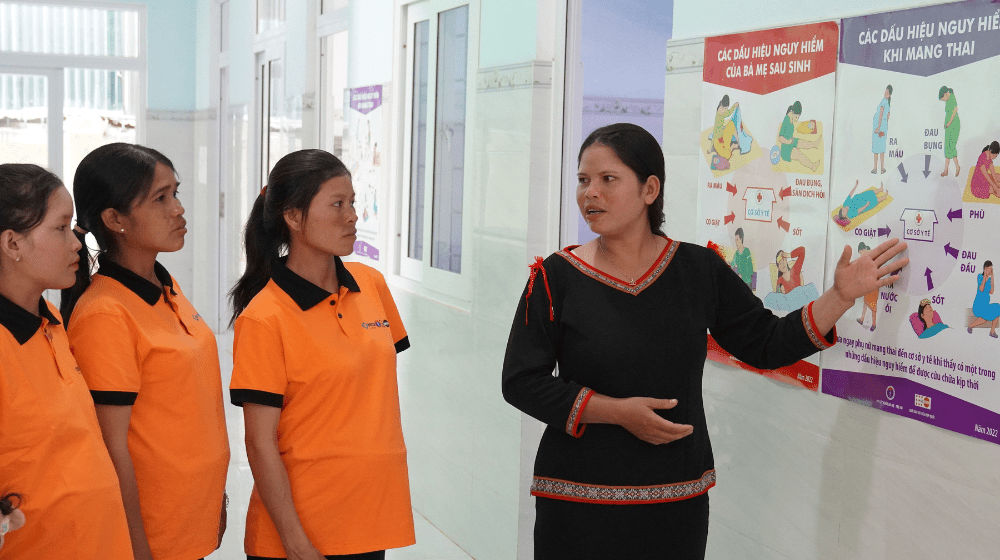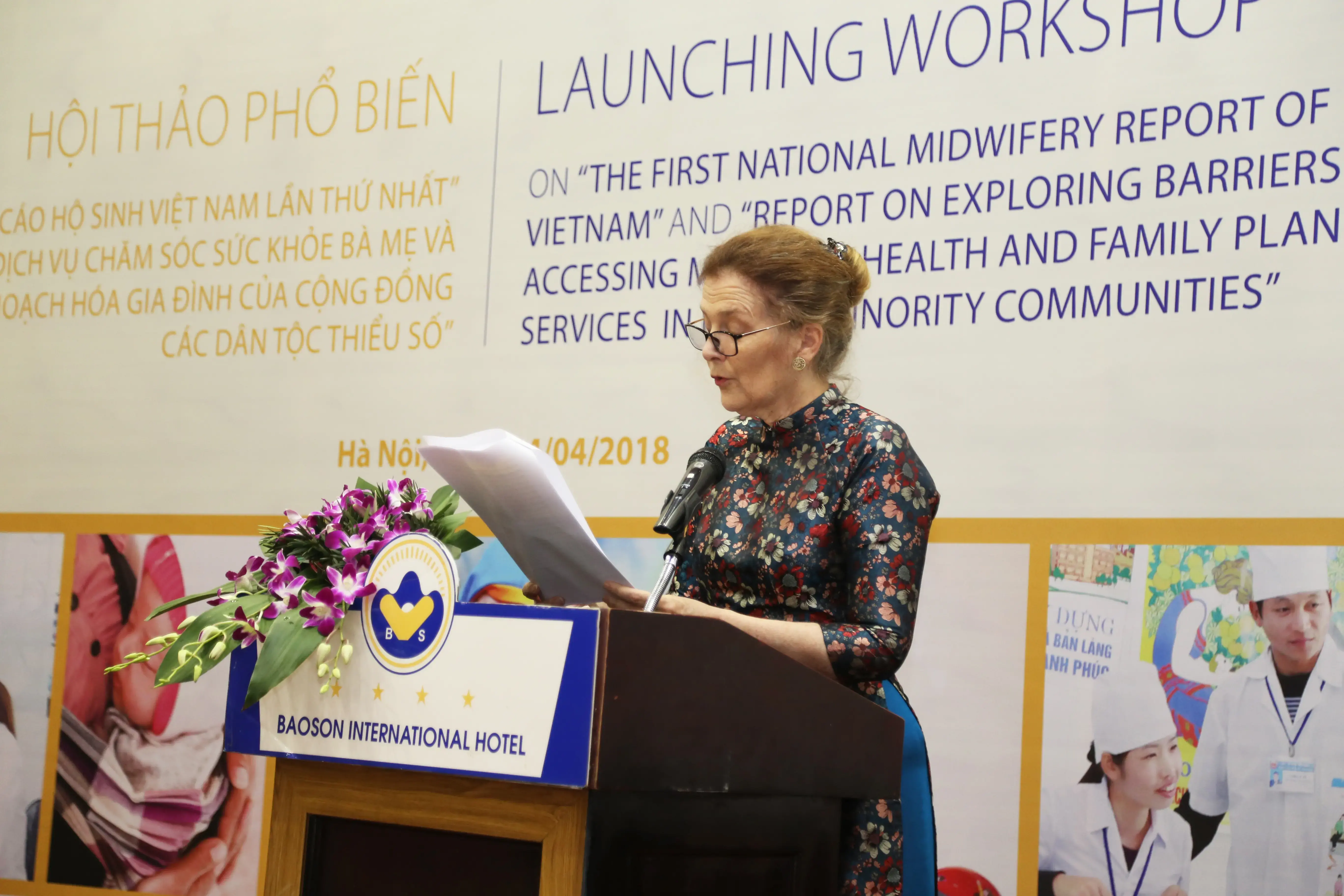Viet Nam is home to 53 diverse ethnic minority groups, with some living in remote regions in the northern mountainous and central highland areas. These regions are characterized by challenging geographic terrain, distinct cultural norms, and limited access to healthcare services, which disproportionately affect the health of women residing there.
Hnhach, a woman of Ba Na ethnicity, calls De Ar commune in Gia Lai province her home. Her life has always been deeply entwined with the traditions of her community, but she could have never envisioned the transformative role she would play in shaping their future.
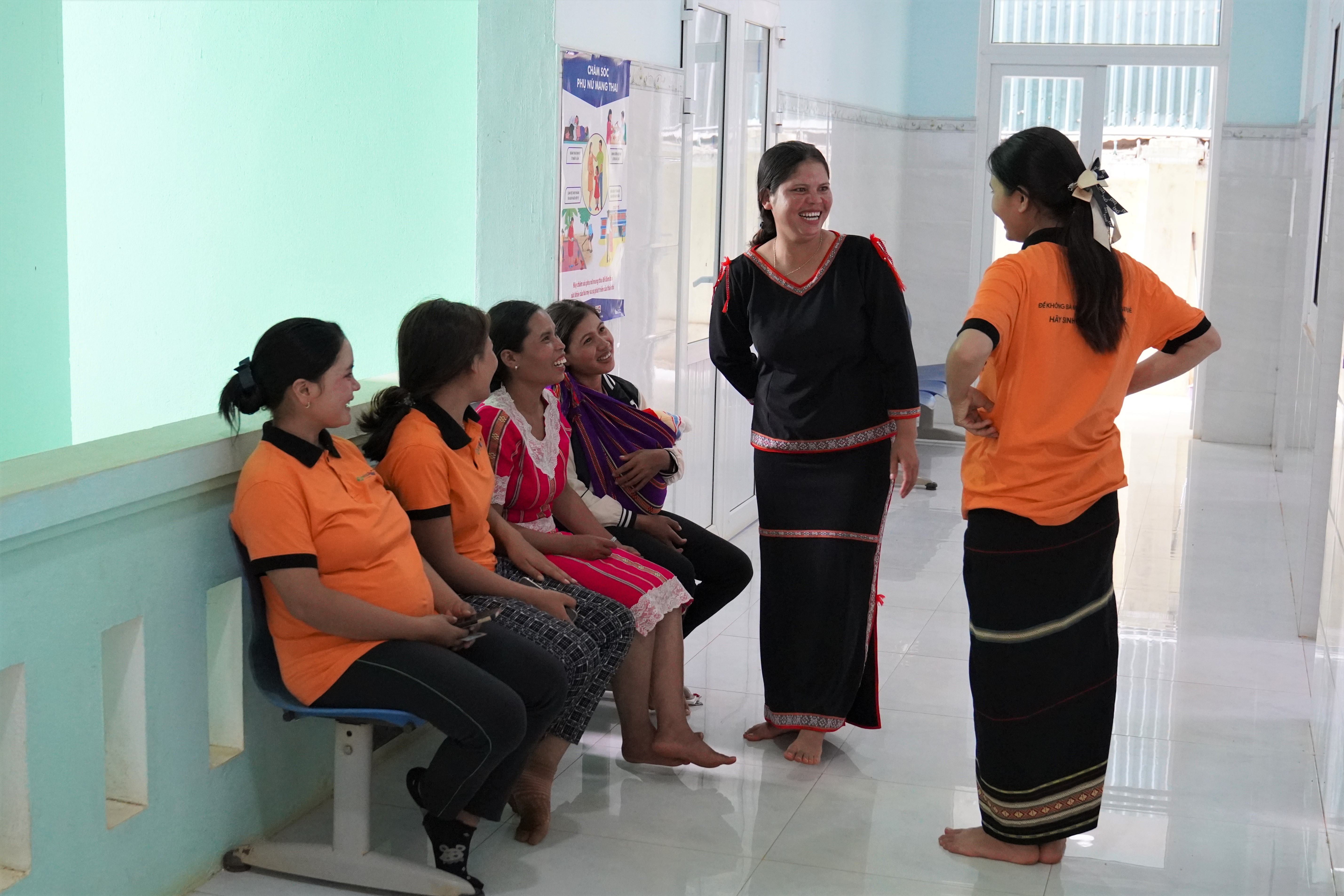
Ms. Hnhach with expectant mothers at De Ar commune health center
De Ar commune, like many ethnic minority remote areas, struggles with limited access to healthcare services, particularly for expectant mothers. Cultural norms favor home births over hospital deliveries, leading to a maternal mortality rate two to three times higher than the national average.
Ms. Yeng, a mother of six in De Ar commune, shared her experience, saying, "I gave birth to 6 children, 5 of them were born at home, the second child was born in Kon Thup. Who assisted me at home? My husband." Her husband, Mr. Ngyưk, admitted that helping his wife deliver at home was scary, but it was a necessity.
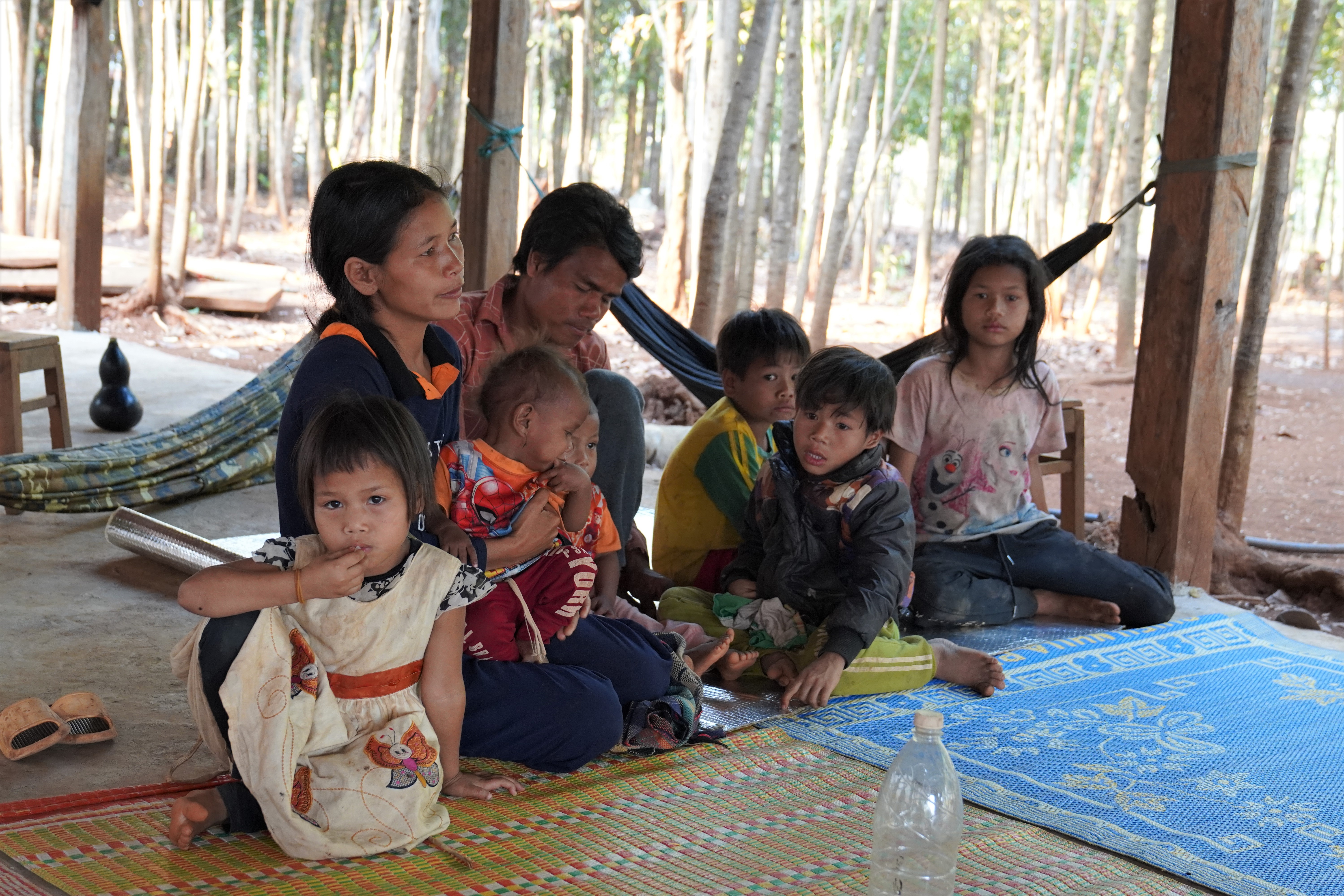
Ms. Yeng, Mr. Ngyưk and their children
Due to socio-economic conditions and language barriers, this region faces additional challenges. Only a limited number of girls complete their secondary education. Finding qualified people to enroll in formal midwifery training programs at medical schools was incredibly difficult. To address this critical shortage of sexual and reproductive health resources, the Ministry of Health, with technical and financial support from UNFPA, developed village-based attendant (VBA) training programs tailored to remote ethnic minority communities.
To date, over 2,000 VBAs have been trained through these programs, with the majority returning to serve their communities. The government also introduced policies and programs to facilitate the work of VBAs, ensuring they could provide high-quality sexual and reproductive health services to underserved communities. These combined efforts contributed to a reduction in maternal mortality and morbidity rates in the mountainous and ethnic minority regions of the country.
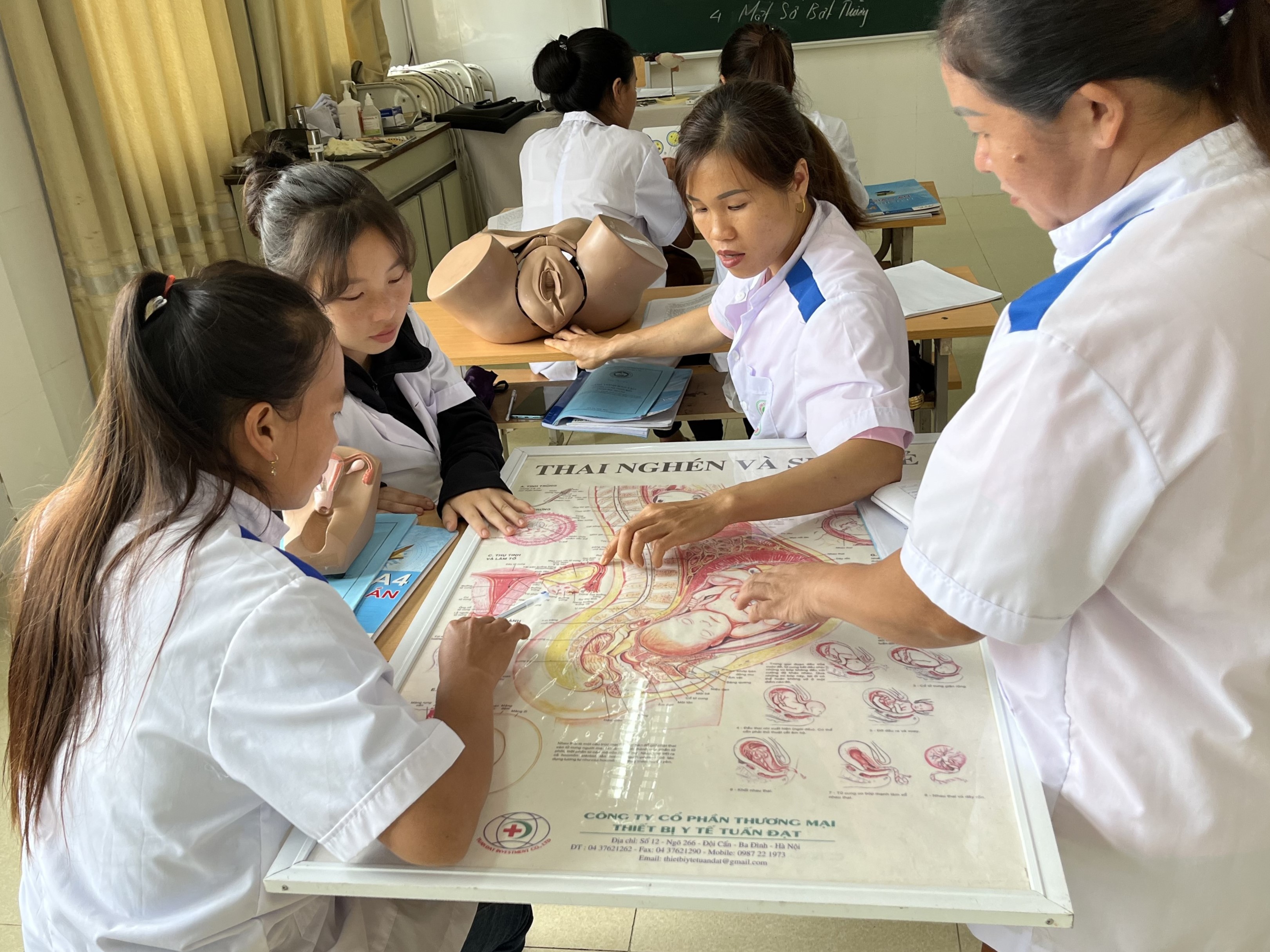
6-month training for village-based birth attendants
Hnhach, one of the two village-based birth attendants in De Ar who receivedx VBA training, knew that changing deeply ingrained cultural norms would be no small task. Women in her community were hesitant to let go of tradition and opt for hospital deliveries due to the distance to healthcare facilities and financial constraints related to travel. Many simply felt uncomfortable to deliver in hospitals.
Supported by UNFPA Viet Nam under the "Leaving No One Behind: Innovative Interventions to Reduce Maternal Mortality in Ethnic Minority Regions of Viet Nam" project, co-funded by MSD-for-Mothers, Hnhach began engaging expectant mothers in conversations about the benefits of hospital deliveries. Breaking with tradition also entailed engaging in conversations with husbands, mothers-in-law, local authorities, and village influencers, including village chiefs and elderly community members.
In 2022 alone, Hnhach assisted in 24 home births, serving as a lifeline for Ba Na women who felt uncomfortable delivering in hospitals. Hnhach's efforts began to yield results as pregnant women in De Ar commune slowly started embracing the idea of hospital deliveries. Some followed Hnhach's advice, resulting in fewer home births and improved access to healthcare services. The women she assisted expressed their profound gratitude. One mother, Ms. Bloy, shared, 'I am very grateful to Ms. Nhach, a village-based birth attendant, for providing advice on healthcare, nutrition, and work. She advised me to reduce my workload, allocate more time for rest, and prioritize my health.
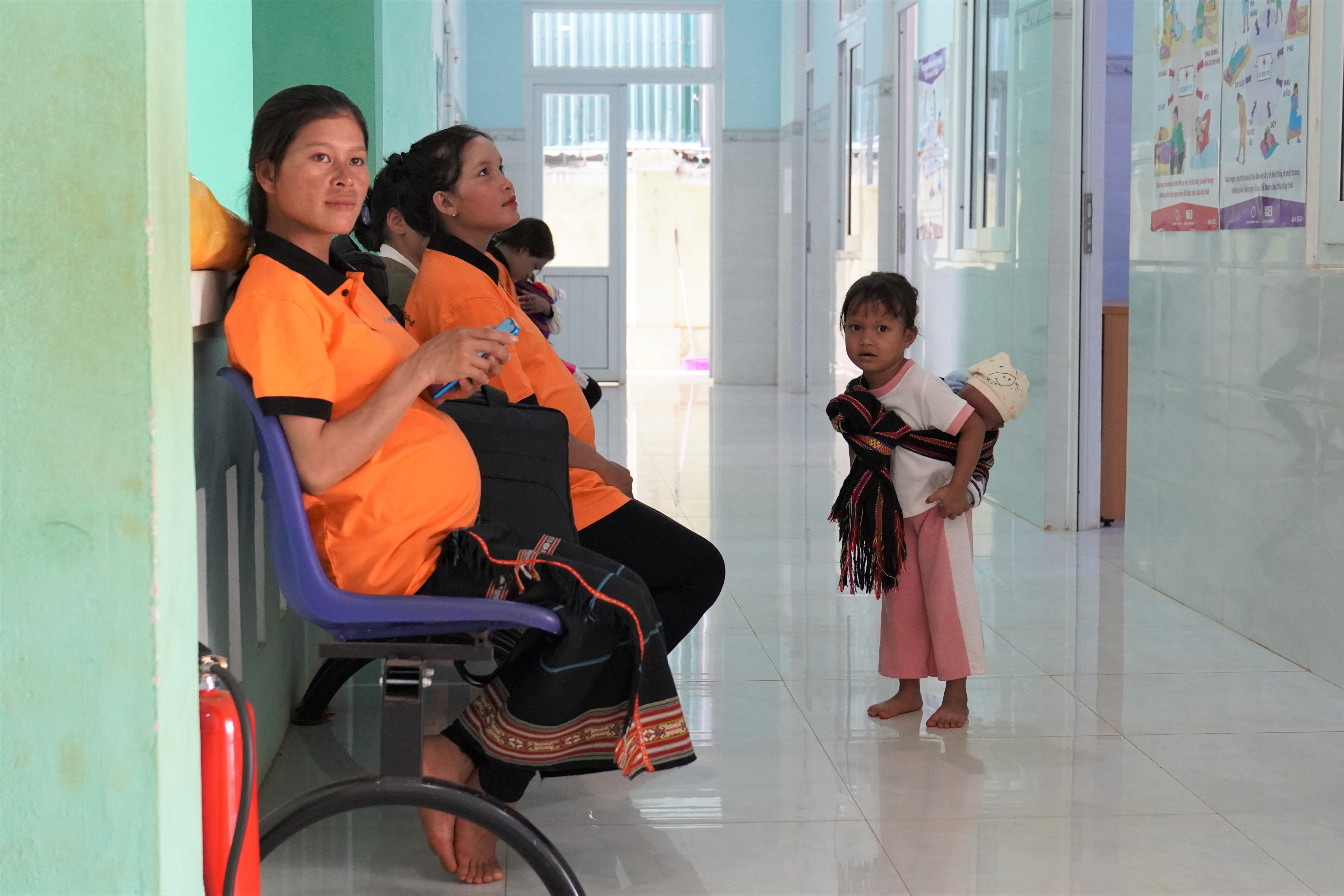
Ms. Bloy (in the foreground)
As Hnhach continues to educate and inspire, she serves as living proof that anyone, regardless of their background, can make a profound difference in the lives of those they serve. Hnhach's dedication, combined with the comprehensive support of UNFPA, paves the way towards improved maternal and reproductive health for ethnic minority communities in Viet Nam, and leaving no one behind in the sustainable development of the country.

